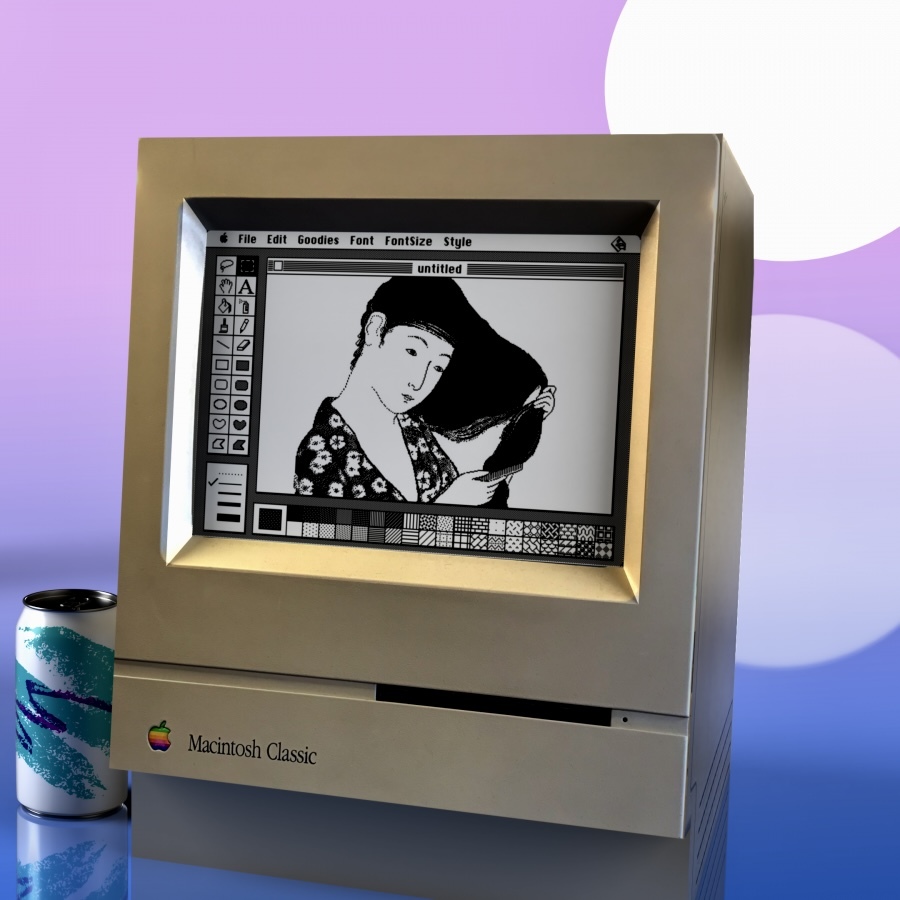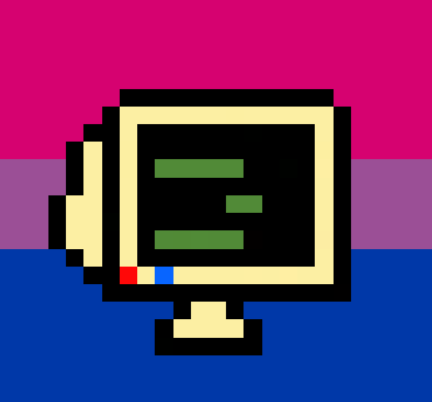I’m old. I don’t understand it.
In common usage, at least, it’s an ecosystem of open source system software that sprang up around the Linux kernel. What exactly a kernel is might not matter to you.
The practical upshot is that you can run a computer without any code on it on it that isn’t publicly accessible (from Apple, Google or Microsoft). There are other ways than Linux if you’re committed, but none nearly as well developed.
This is good, because Linux is free of cost, free of restrictions on what you do with it, and experience has shown that open source code is much more maintainable and less likely to contain bugs and security vulnerabilities. (Basically, if any problems come up someone out there is likely to fix them, while closed-source software is rarely touched by anyone other than the original team)
Just for fun, and because someone has to post the meme:
I'd just like to interject for a moment.
What you’re refering to as Linux, is in fact, GNU/Linux, or as I’ve recently taken to calling it, GNU plus Linux. Linux is not an operating system unto itself, but rather another free component of a fully functioning GNU system made useful by the GNU corelibs, shell utilities and vital system components comprising a full OS as defined by POSIX.
Many computer users run a modified version of the GNU system every day, without realizing it. Through a peculiar turn of events, the version of GNU which is widely used today is often called Linux, and many of its users are not aware that it is basically the GNU system, developed by the GNU Project.
There really is a Linux, and these people are using it, but it is just a part of the system they use. Linux is the kernel: the program in the system that allocates the machine’s resources to the other programs that you run. The kernel is an essential part of an operating system, but useless by itself; it can only function in the context of a complete operating system. Linux is normally used in combination with the GNU operating system: the whole system is basically GNU with Linux added, or GNU/Linux. All the so-called Linux distributions are really distributions of GNU/Linux!
someone has to post the meme:
No, no one needs to post the embarrassing speech where stallman tries to ride linus’ coat-tails.
He’s not totally wrong to be bugged about it. He basically is the father of modern free software, and by extension all the non-kernel components of a typical Linux machine, but the setup ended up named after another guy and an obsolete thing from Bell labs.
Its the software you use to run other software on the computer. Microsoft’s version is called “Windows” and Apple’s is called “MacOS”.
computer go brrr
You know how a lot of computers use windows? And a lot are macs? And there’s a difference between the way you have menus and apps and stuff? Linux is a third way to use your computer. But there’s a lot of versions of it. It doesn’t matter what kind of computer you put it on either. New, old, windows, Mac, mini computers, old laptops. Linux is simply another way to use your computer. It’s really cool if you’re into that kind of thing.
That sounds very clever
Okay, imagine your computer is like a big playground.
Linux is like a really cool, free, and super customizable manager for that playground.
- Manager (Operating System): Just like Windows or macOS, Linux is the main software that runs your computer, manages all its parts (like the screen, keyboard, and internet), and lets you run other programs (like a web browser or games).
- Free: Most of the time, Linux doesn’t cost any money to use.
- Customizable: Unlike some other managers that have strict rules for how the playground is set up, Linux lets you (or people who know how) change almost anything about how it looks and works. This is why there are many different “flavors” of Linux (called distributions or “distros” like Ubuntu or Mint), each with a slightly different setup.
In short: Linux is a free, open-source operating system that gives you a lot of control over your computer. Many phones (Android is based on Linux!), servers that run websites, and supercomputers use it because it’s powerful and flexible
Yes I use AI
imagine your computer is like a big playground
… goes on to do nothing with that analogy.
Yes I use AI
For this comment? Why?
Low effort question, get a low effort answer. Google do still exist. :)
I think you miss the point of this community
Yes I use AI
No you don’t.
You used a large language model, which is a very fancy statistics based autocomplete algorithm, but has absolutely nothing whatsoever to do with artificial intelligence, other than by harming public opinion of it and sucking off all the funding that could be used on actual AI research.
Good luck convincing the general population. Better to just accept AGI is the new term for what you’re referring to.
It’s neither general nor intelligence.
You misunderstand me.
AGI doesn’t exist.
Of course it doesn’t, everyone is wasting time and money on LLMs instead of on proper AI research.
That’s not a reason to call them AI or AGI, though. On the contrary, it’s poisoning the term, because once the LLM bubble bursts no one will want to invest in AI research for decades, because they’ll associate it with LLMs. (Not to mention how hard it’ll be to research anything when all sources of information have been poisoned with LLM slop.)
I never said we should call the LLMs AGI. All I’m saying is the general population does call it AI, and that’s not going to change.
Just like Windows (95, Me,Vista,XP, 10, 11)OS and macOS (Mountain Lion, Yosemite, El Capita) there is a 3rd option. Linux! It’s free and available to anyone and is highly compatible with most if not all types of hardware. Like all things in life, there are caveats and ability to customize to your discretion. Do not be intimidated by the flavors that exist, such as Ubuntu, Mint, Arch and many many more! As an example there is steamOS used on the Steam Deck. This a a divergent version of another open source OS, that is compatible in using for mobile gaming. My verbiage is limited and very very broad and brief. The history of it all stems from one singularity, the kernel or the “brains” of the computer. All variants of operating systems stem from Unix. This is particularly due to use cases of specificity task, or goal of the program to accomplish.
Already some way better answers than i could give, however I would stonely suggest you take a look at using it. Windows is terrible, especially nowadays, and for the general user (“office”, web browsing, etc) its 100% stable, easy to use, and free!
There will be a slight learning curve for new users if your not especially tech savvy, as your question implies you may not be, but if you choose the right distro (version) you’ll be fine!
Linux can be super complicated, if you want it to be, but can also be super simple if you dont need it to be.
It’s kinda similar to Unix.
Every desktop computer has an operating system. Most of them run Windows. Some run MacOS, this is why the software on Macs and other PCs is different.
Linux is another operating system, its free and anyone can see the code its written in.
Linux is popular with nerds and programmers since its easier to do some advanced stuff in. Its popular as an alternative to windows since Windows is progressively getting more annoying to use (updates, popups etc).
Linux is used by servers (computers that run websites, like lemmy), and other stuff like smart appliances.
The android Operating System (used by android phones, like Samsung phones) is based on linux.This is an amazing explanation, and you also managed to keep it relatively short.
Yes but you missed a lot of things of course.
Linux is free software, unlike MacOS or Windows. That means that the software is given users for free, and they can mostly also change it and redistribute it as their own.
This is why there are so many varieties of Linux Distributions, as the used software components are often the same, but they are released in different cadences, have different configurations and behaviors, or different focuses (for example Gaming, Server, Workstation, Lightweight, System rescue, hacking, anonymity).
Free software means that everyone can use it, how they want. Nobody needs to pay, but donations and contributions are crucial. While many big components like the core part “Linux” and others are developed and maintained by bigger corporations (which sell support or systems to mostly enterprise customers), a lot of the Linux software is fully done by people out of love, in their free time.
I appreciate the reminder about donations; just went to drop a little money on Mint as thanks to them!
Is there a Best of Lemmy community? Cause this belongs there.
Your computer is a bunch of parts that need software to make them work. The “operating system” handles talking to the hardware directly, while the programs you run only talk to the operating system. Talking to the operating system is easy, talking to the hardware is difficult, since you may need to speak a hundred different languages to work with every possible network card, sound card, graphics card, etc.
The operating systems you have probably heard of are windows and macOS. Linux is a 3rd one.
Windows is owned by Microsoft, macOS is owned by Apple, and Linux is developed by the community and (typically) released for free. Since anyone can work on Linux, there are tons of different versions of it floating around, that are all slightly different from one another.
4/10. No mention of TempleOS.
Nah, this is a really good explanation.
TempleOS is not Linux!
Have you heard of Stallman’s new project TNL?
Dude may have been nuts, but he did do something quite impressive for his time.
Omg this us an amazing explanation thanks
Fun fact: Android is one of those Linux variants. It is, however, so highly modified, that we usually don’t really call it ‘Linux’ anymore. But the core components of Android are most certainly Linux components. So in a pedantic way, way more people directly use Linux than you would think.
There’s pretty much three core OSes out there:
- Windows
- Linux
- BSD
Amost everything else is just a variation of these.
Android, ChromeOS, PS3 OS, tons of embedded systems like car entertainment systems, and of course all the traditional Linux distros like Ubuntu, Mint, PopOS, Fedora, and so on are Linux.
MacOS, iOS, Switch OS, pfSense and tons of embedded systems like routers, and of course all the traditional BSD distros like FreeBSD, NetBSD or OpenBSD and so on are BSD based. (Though Switch OS, to be fair, is mostly it’s own thing, only borrowing significant portions from BSD.)
So buckle up, it’s story time.
Your computer needs to run software like any other computer does for it to do what you want it to do. There are lots of different parts that do the same thing in different ways and so there are lots of ways to make a computer.
Once upon a time people would write software for specific machines. Anytime a new machine was released, they had to change the software to work on the newer machine. This got real old real fast.
Operating systems come between your software and your hardware. Rather than release a version of your software for each individual type of computer, you just have to release software that works on a specific operating system. So if I sell a program that draws red squares, I would have to release tons of different versions for different machines. That’s expensive and a pain in the ass to maintain. So instead I release my red square program for windows. Now, I describe to windows how to draw that red square with my program and windows handles the task of telling all those different types of computers to do what my program wants it to do.
Microsoft makes windows. Apple makes macOS. But there are others that exist with a different business model. Linux is free and exists under a different philosophy, that a community can share knowledge to replace the locked down and expensive offerings from Microsoft and Apple. To fund this, they may charge for support of the product instead of or in addition to the operating system itself.
When people talk about Linux they are typically referring to a Linux distro that can make up an entire operating system, oftentimes a full replacement of windows or macOS. But technically Linux is just a part of what makes the entire operating system. It’s arguably the most important part, the kernel. Think of the kernel as the core of the operating system. Everything else an operating system does is built on top of the kernel. Linus Torvalds maintains the Linux kernel and he just gives it away.
Linux doesn’t really do a hell if a lot by itself, but a kernel is an incredibly complicated thing to create. So others contribute not just to improving the kernel but making other things that use it to do other things. Because Linus already has a kernel he released for others do what they want with it, it makes things a LOT easier to develop since a huge part of the work has already been done.
All operating systems have kernels and they are the probably the biggest pain the ass part to make. Linus created a simple one years ago and shared it with everyone, who contributed their ideas over the years to enable it to do all sorts of things it couldn’t before.
Now here’s the interesting part: all those people who contributed to developing this thing have day jobs and their employers really don’t want to pay them to reinvent the wheel. So all the big, heavy, expensive, vital stuff that happens behind the scenes that makes our world work needs experienced people to make it work and it doesn’t want to make something only a few people can make work. It would be a catastrophe if the only guy who knew how your shit worked retires, dies, or, dare I say it, asks for a raise. -wilhelm scream-
So if a big company uses Linux, they have an enormous community of talented people they can hire at any time, they aren’t locked into a way of doing things that can request a ransom to continue working (ahem, adobe), and their start up costs are lower.
So who uses Linux? Almost everybody. If it’s online, there’s Linux backing it. Meta (Facebook), Google, Amazon, Apple, even fucking Microsoft uses Linux, and most of the companies using it also contribute back into Linux development because it’s much cheaper than doing it all by themselves.
Now how does this affect you? Linux isn’t just for highly skilled tech professionals running major operations. It’s for that little computer in your desk that just looks at Facebook and internet porn too! Many people are looking for alternatives since their perfectly working windows 10 computer won’t be supported past October anymore and not all of them can upgrade to windows 11. But you can install Linux for free and you’ll be fine.
What makes the kernel such a PITA?
Per se, it’s actually not. There are thousands and thousands of hobby-level kernels floating around. Many university courses actually include making your own simple kernel.
The big issue is that the kernel is the core of the whole ecosystem. Everything builds upon it. So if you build a new kernel, you pretty much need to rebuild everything built on top of it.
As a bad comparison, imagine you came up with a genious new shape for a car fuel hose nozzle. You know, the thing you plug into your car to refuel it. Designing a new nozzle is easy. Getting it made isn’t much harder either. Retrofitting billions of cars to work with that new shape is an almost impossible amount of work. So while making a new nozzle is no problem at all, actually implementing it is almost impossible.
The same holds true for the kernel. Making “a kernel” isn’t a big issue. Getting it to work with all PCs with all their diverse hardware and software is close to impossible.
The Linux kernel and the drivers running in it easily have billions of work hours invested into it, and still it doesn’t work perfectly with every piece of hardware you might have in your PC.
Programming is a balance of compromises, one has to define a balance between optimisation, maintainability, legibility, security and much more.
The kernel handles a bunch of different ‘low level’ things that are quite complicated (Allocating memory to programs, scheduling what programs the CPU needs to run, creating security layers for users, handling temperature and performance throttling, peripherals etc)
Due to its pivotal role in an operating system, the kernel developers walk a very thin line of compromises to ensure that it can be maintained and still remain performant.
They do all of this while ensuring that any updates to the Kernel do not break older systems when they update (fingers crossed) or they do not break programs specific to the user (Userspace programs)
Literally everything depends on it. It has to account for a lot of variables. It has to be compatible forward and backward. There’s also a lot of personalities involved in its development and they all need to get along.
You seem to know a lot about Linux so I wonder if you could answer my question - if I already have software (well, games) installed using Windows, would the same be compatible with Linux or would I have to start from the scratch and try to see if there are Linux compatible versions of these games?
Short answer: yes and no
Longer answer: remember my red square example earlier? Software is typically written for an operating system rather than a specific machine. Each operating system can do similar things but they do those things in different ways. So my red square program for windows would be different that on for Linux or Mac.
When your write software, it calls out of other things in the operating system to do work on its behalf so it’s written with the expectation that what it’s talking to will already understand the things it’s going to say the way it’s already programmed to say them. But when you try to run a windows game on something other than windows, it doesn’t work. It’s like trying to talk to someone when they speak a different language. You can’t understand eachother.
Enter WINE. WINE translates windows instructions into Linux instructions on the fly. It is able to intercept instructions a program sends out to the OS, then translate them to whatever equivalent Linux has.
This works…ish. Because Linux and windows and built entirely differently, there isn’t always a direct equivalent for what a program might ask the OS to do. So WINE has to get clever. WINE has been taught over the years what is close enough to expected behavior for most programs to generally run fine with it. But because there is so much difference between expected behavior and what we are able to fake, it can’t create a solution that works 100% of the time so some apps might work while others don’t. You’ll have to try it to be sure.
But you asked about games and games are a bit more tricky. Games have extra things in them that most other apps don’t have. The biggest concern with games are DRM and anti-cheat code.
DRM (digital rights management) basically tries to keep people from making illegal copies of their games. There are many different methods of DRM but they all expect the environment they are run in to work in a very specific way, so if they see something unexpected, even if it’s technically right, it will fail. The DRM will assume the game is an illegal copy and won’t run. WINE isn’t great with DRM but sometimes it can work anyway.
The other issue is anti-cheat and this has a similar issue to some forms of DRM. With anti-cheat, a game is designed to notice if someone is peeking at its working memory and possibly writing changes that the game didn’t want. So some of these install very low-level drivers in the system that tell the game what is spying on its memory. Some DRM systems work this way too.
WINE is super clever, but remember that it is only able to fake an environment and translate commands on the fly. It needs equivalents to exist in Linux or at least something close enough it can make up the difference. These anti-cheat drivers are basically malware because they don’t follow the rules that normal software does. They don’t behave like normal software does. They need to install at the kernel level and mess with things that deeply. Linux kernel modules DO exist but they work entirely differently from windows kernel modules and there’s no way to translate something that low level in real time. There’s also no interest in creating such a technology as even Microsoft has admitted it was a terrible idea and are now kicking third parties out of its kernel thanks to the crowdstrike incident.
So if a game calls out for that anti-cheat software or DRM driver saying “hey you’ve got my back, right?” There’s nothing there to answer it. So the game won’t run.
There is some good news though. For many reasons, there has been massive blowback against DRM over the years and many vendors are paying attention and selling games without invasive DRM and anticheat measures. GOG has lots of DRM-free games and there are plenty of cracked games out there that had these obnoxious bits of code yanked out if you know where to look. There’s also plenty of small, indie games that never had DRM or kernel-level anti-cheat code in the first place and those have a much higher success rate of running under WINE. Some of them even have native Linux versions. (If you install zandronum on Linux natively, no wine, you can run all zandronum games, like doom or megaman 8-bit deathmatch)
Thank you, that was very helpful.
A computer has hardware (your hard drive, memory, screen, processor) and software (a web browser, Discord, apps, etc.). Your operating system is what manages your hardware and software, and provides a user interface for you to interact with. Microsoft Windows, IOS and Android are all types of operating systems. They allow you to run software, change your display settings, connect to the Internet and do anything else that your hardware and software allow.
Linux is an operating system, or more accurately, a collection of operating systems that are free and open source. This means that anyone can take the Linux kernel (the base of the operating system), and create their own distribution, or distro for short. There are dozens of Linux distros out there, each serving different users or different purposes. For this reason, Linux is used on a wide variety of devices. Android on smartphones and tablets, steam OS on gaming handhelds, and the software that powers most smart home appliances, these are all different types of Linux distros!
Simplified explanation (shut up, Richard Stallman) : It’s an operating system. In the same way a PC (or any other computer) has Windows (or OsX/MacOS, android, et.al.) as the connecting layer between the hardware and individual programs.
Linux can serve this role as well, and as it’s free and open source, it’s particularly popular among the tech and privacy enthusiasts here on Lemmy. Some use it for everything, some use it alongside windows (dualbooting), and some use it in a professional setting.
Linux is especially common on servers, but it’s also gaining a lot of ground in the desktop space as well. Since Linux is free to distribute, many have over the years made lots of nux distributions specifically tailored towards particular use cases.
Source: Linux user of 25ish years.
Tip: The Linux mint installer can boot into a fully fledged Linux without touching anything on your hard-drive, so if you want to check it out without installing, you can.
Just adding to this, Linux is pretty ubiquitous these days, with it being found running billboards, menus, information screens, and many machines and appliances.
Though these versions are stripped down and no what you are used to from a desktop. They just have the kernel and a few services for the task at hand.
I was too afraid to ask, thanks…












